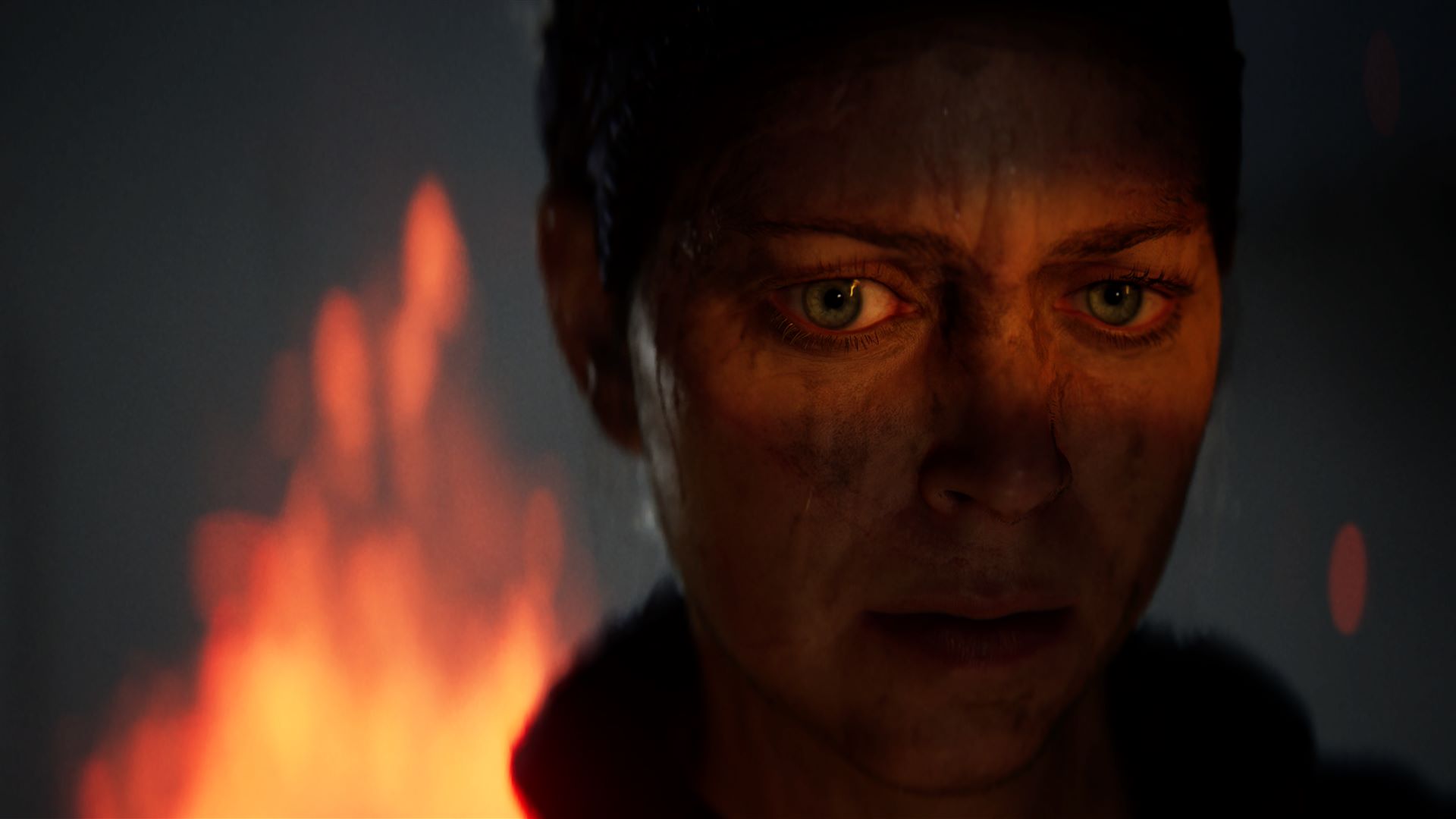
Hi everyone, Dom Matthews here, Studio Head at Ninja Theory. On May 21 we release Senua’s Saga: Hellblade II on Xbox Series X|S and on PC. It will be a proud moment for our team and those that have contributed to our development journey. Today, I’d like to celebrate the contribution of our mental health consultants, with the release of ‘Senua’s Psychosis’, a feature video that details how, by way of collaboration, Senua’s experiences of psychosis in Hellblade II are rooted both in neuroscience and in real lived experience.
When the idea for telling the story of a character who experiences psychosis was first thought of, we knew instantly that we had a responsibility to understand the subject thoroughly. With this intent in-hand, we started a collaboration with Professor Paul Fletcher, Professor of Health Neuroscience at University of Cambridge, which in-turn led to us building a partnership with Recovery College East and other groups of people who, like Senua, have had real lived experience of seeing and hearing things that others don’t and having unique beliefs about the world. What started off as an exercise in hoping to learn, quickly transitioned into a creative collaboration where the openness, honesty and enthusiasm of our collaborators gave us the chance to not only portray Senua’s experiences truthfully – but enhance our character, her world and her story.
In Hellblade: Senua’s Sacrifice, we were so honored to hear from fans that Senua’s journey had helped them understand psychosis a little more. For some, it helped them to understand their own experiences. For others, it helped them to understand the experiences of loved ones. And for many, it helped them to build empathy for the millions of people who struggle daily with mental health challenges.
As we approach the launch of Senua’s Saga: Hellblade II my hope is that once again we can, for some, give a taste of what it can be like to hear voices, to see things that only you can see and to be driven by beliefs that may be unusual to others. Several weeks ago, I was excited to share the stage with our collaborators at Hellblade: A Journey of the mind, a conference, hosted in partnership with Cambridge Neuroscience, dedicated to exploring the theme of how Senua’s psychosis has come to life in Hellblade. For those interested, you can watch the full conference here. The conference was a reminder to me of how fortunate we have been to work with our mental health collaborators, a special group of people that have, throughout our development, dedicated themselves to helping us tell Senua’s story as someone who’s experiences could very well be those of a real person.
In today’s video, I’m proud to introduce you to Paul, Eddy and Kathy and I thank them, and all our collaborators, for their immense contribution to Hellblade.
For further information on the themes discussed in this video, please visit hellbladehelp.info.
Hi everyone, Dom Matthews here, Studio Head at Ninja Theory. On May 21 we release Senua’s Saga: Hellblade II on Xbox Series X|S and on PC. It will be a proud moment for our team and those that have contributed to our development journey. Today, I’d like to celebrate the contribution of our mental health consultants, with the release of ‘Senua’s Psychosis’, a feature video that details how, by way of collaboration, Senua’s experiences of psychosis in Hellblade II are rooted both in neuroscience and in real lived experience.
When the idea for telling the story of a character who experiences psychosis was first thought of, we knew instantly that we had a responsibility to understand the subject thoroughly. With this intent in-hand, we started a collaboration with Professor Paul Fletcher, Professor of Health Neuroscience at University of Cambridge, which in-turn led to us building a partnership with Recovery College East and other groups of people who, like Senua, have had real lived experience of seeing and hearing things that others don’t and having unique beliefs about the world. What started off as an exercise in hoping to learn, quickly transitioned into a creative collaboration where the openness, honesty and enthusiasm of our collaborators gave us the chance to not only portray Senua’s experiences truthfully – but enhance our character, her world and her story.
In Hellblade: Senua’s Sacrifice, we were so honored to hear from fans that Senua’s journey had helped them understand psychosis a little more. For some, it helped them to understand their own experiences. For others, it helped them to understand the experiences of loved ones. And for many, it helped them to build empathy for the millions of people who struggle daily with mental health challenges.
As we approach the launch of Senua’s Saga: Hellblade II my hope is that once again we can, for some, give a taste of what it can be like to hear voices, to see things that only you can see and to be driven by beliefs that may be unusual to others. Several weeks ago, I was excited to share the stage with our collaborators at Hellblade: A Journey of the mind, a conference, hosted in partnership with Cambridge Neuroscience, dedicated to exploring the theme of how Senua’s psychosis has come to life in Hellblade. For those interested, you can watch the full conference here. The conference was a reminder to me of how fortunate we have been to work with our mental health collaborators, a special group of people that have, throughout our development, dedicated themselves to helping us tell Senua’s story as someone who’s experiences could very well be those of a real person.
In today’s video, I’m proud to introduce you to Paul, Eddy and Kathy and I thank them, and all our collaborators, for their immense contribution to Hellblade.
For further information on the themes discussed in this video, please visit hellbladehelp.info.






